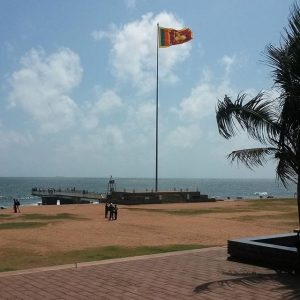

Sri Lanka plans to make major changes in tax policy and administration in the framework of the economic program, which is supported by the International Monetary Fund loan (IMF).
The two sides reached an agreement on the 36-month financing amounting to about USD 1.5 bn.
The economic program aimed at increasing productivity which will reduce the budget deficit and public debt, as well as relieve pressure on the balance of payments, the fund reported.
“The program of the authorities with the support of the IMF focuses on a set of reforms in the tax Sri Lanka’s system – the elimination of exemptions and special rates broadening the tax base and creating a tax system that is simple, efficient and fairer,” said Todd Schneider the head of the IMF mission in Sri Lanka.
The government will seek to improve the ratio of taxes-to-GDP to about 15 percent by 2020 through the implementation of a new law on domestic revenue, VAT reform and the customs code. May 2, 2016, Sri Lanka has increased its rate of value added tax from 11 to 15 per cent to strengthen the finances of the nation.